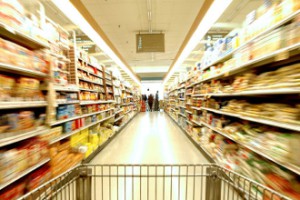Some considerations on the incidence of tax policy in the economic process
Taxes and their impact on consumption – brief reflections
 Topic presentation
Topic presentation
Certainly, the State intervenes in the economy by means of induction through taxes, which it is not the objective of the present article.
The question we must ask is whether tax policy has an effective impact in the politics of consumption, based on the assertion that ultimately it is an instrument of economic policy.
To introduce our topic, we consider that in the first place we need to identify which are the elements that characterize the politics of consumption.
In our view, among other factors, the consumption responds to two significant variables: i) the first is the “consumption volume”. More precisely, this means “how much” you could spend; it is a quantitative element and ii) a qualitative element constituted by the “structure of consumption” or what is the same, “what” is going to be bought.
The mentioned variables are not isolated and independent elements, but they certainly will depend on other factors. In this sense, what is related to the “volume of consumption” depends evidently on two factors to highlight: a) the income level and b) the overall level of prices. No doubt that any of these elements will affect the mentioned variable.
About the variable related to the spending goal, or “what” you will buy, two factors significantly affect it and deserve our consideration: a) the structure of the national income distribution and b) the relative prices of final goods and services for consumption.
In general terms, the presentation of the consumer policy, in its basic features, determine whether tax policy has a real impact on consumption, which it the initial question that we seek to answer.
We have to analyze if the tax policy, through the design of the technical structure of taxes, can influence the factors noted above. If this policy can alter them through the use of different designs of taxes, then this would indicate that it will also affect the two aforementioned variables – “consumption level” and “consumption structure” – of which the politics of consumption depends.
As a result, if it is shown that aforementioned effects chain is effective, then clearly the tax policy is an instrument which can influence and affect the politics of consumption.
The tax policy and its relationship with the factors affecting the consumption policy variables
i) Consumption volume
As already expressed, the volume of consumption variable depends essentially on two factors:
i.a) one of them is the income level: it is evident that tax policy can influence it using, for example, the personal income tax, in this case, no matter which the income system is used – schedular, global or mixed – in its various forms.
There is no doubt that in any system the will produce an economic effect, reducing the amount of the taxpayer income, which will affect the consumption level, decreasing the amount earmarked for it.
The tax decision could generate an opposite effect in case of a rate decrease or an exemption from an already existing income tax, among other measures.
i.b) The other factor is the general level of prices. The Tax policy can affect them with taxes such as the general sales tax in any of its forms: single-stage or multi-stage.
No doubt that in this case, when the average prices increase as consequence of the implementation of the tax or the increase of rates if the tax is already in force, real consumption tends to decrease, depending obviously on the elasticity of the demand for goods and services.
Also in this case tax measures could produce opposite effects, such as the reduction in existing tax rates, as noted previously,
ii) Consumption structure
With respect to this variable we also identified two basic factors affecting it:
ii.a) The income distribution structure. If this one is not equitable, which the most common situation, the tax policy certainly has techniques which help minimizing this situation and facilitate a better income redistribution, using a global and progressive personal income tax system. In this case, unlike what mentioned when we refer to the consumption volume, any of the income tax systems cannot be applied, as for example the “schedular” system, given that this technique fractions the taxpayer’s income and accordingly does not consider their contributive capacity, which prevents achieving equity.
ii.a). Another factor is the relative prices of goods and services for final consumption, which can influence the spending. Also in this case tax policy can affect the referred prices.
In this sense, the so-called “selective consumption taxes” constitute a suitable and important element. One of their roles is to modify the allocation of available resources by taxing only a few selected goods and services, depending on each country’s economic reality. I.e. the prices of certain goods and services may be affected, and this would alter their consumption which will depend on the coefficient elasticity-price.
We cannot omit that the “taxation on imported goods” has also an incidence on consumption policy even if the main purpose of customs tariffs should be the protection of specific elements of the national production.
Conclusion
The answer to the question raised in the presentation of the topic is that tax policy, as an instrument, can influence the politics of consumption and therefore the economic process of a country.
2,320 total views, 5 views today
